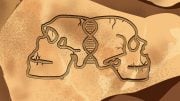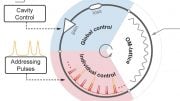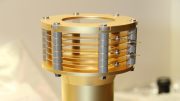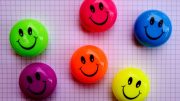
Drinking caffeinated coffee appears to have both beneficial and harmful short-term health effects.
Research reveals that caffeinated coffee increases abnormal heartbeats and physical activity while reducing sleep duration.
- A randomized trial to study caffeinated coffee consumption among 100 volunteers for two weeks found both potentially beneficial and harmful short-term health consequences of drinking coffee.
- When participants were randomly assigned to drink coffee, they were more physically active, yet they also had an increased number of abnormal heartbeats and slept less compared to when they were randomly assigned to avoid all caffeine.
Coffee Consumption and Heart Rhythms
Drinking caffeinated coffee appears to have both beneficial and harmful short-term health effects: increased abnormal heartbeats, increased physical activity, and reduced sleep duration, according to research that was presented at American Heart Association’s Scientific Sessions 2021.
“Coffee is the most commonly consumed beverage in the world, yet its health effects remain uncertain,” said study author Gregory Marcus, M.D., M.A.S., associate chief of cardiology for research and endowed professor of atrial fibrillation research at the University of California, San Francisco. “While the majority of long-term observational studies have suggested multiple potential benefits of drinking coffee, this is the first randomized trial to investigate the real-time, physiologic consequences of coffee consumption.”
Marcus and colleagues enrolled 100 adult volunteers, and they were assigned to wear continuously recording ECG devices (to track heart rhythm), wrist-worn devices to track physical activity and sleep; and continuous glucose monitors to track blood sugar levels for two weeks. The participants were an average age of 38 years, 51% were women and 48% were white. Researchers also obtained DNA saliva samples from the participants to assess genetic variants that may affect caffeine metabolism.
Effects of Coffee on Heart Rhythms and Physical Activity
Participants were then randomly assigned to either avoid or consume coffee for no more than two consecutive days each for 14 consecutive days. Coffee and espresso consumption were recorded in real time via a “time stamp button” on the ECG monitor, and researchers tracked trips to coffee shops with geotracking. In addition, participants completed daily questionnaires to detail how much coffee they had consumed every morning.
Coffee Intake and Sleep Patterns
The analysis found that coffee consumption was associated with a 54% increase in premature ventricular contractions, a type of abnormal heartbeat originating in the lower heart chambers reported to feel like a skipped heartbeat. In contrast, drinking more coffee was associated with fewer episodes of supraventricular tachycardia, an abnormally rapid heart rhythm arising from the upper heart chambers.
Consuming coffee was consistently associated with more physical activity as well as less sleep. Specifically:
- Participants who consumed coffee logged more than 1,000 additional steps per day compared to days when they did not drink coffee.
- On the days participants drank coffee, they had 36 fewer minutes of sleep per night according to their Fitbit devices.
- Drinking more than one coffee drink more than doubled the number of irregular heartbeats arising from the heart’s lower chambers.
- Each additional cup of coffee consumed was associated with nearly 600 more steps per day and 18 fewer minutes of sleep per night.
- There were no differences in continuously recorded glucose measured when the study participants consumed versus avoided coffee.
These findings were corroborated by analyses of adherence to their randomization assignment and amplified when more versus less coffee was consumed.
Health Implications of Coffee-Induced Activity and Sleep Reduction
“More physical activity, which appears to be prompted by coffee consumption, has numerous health benefits, such as reduced risks of Type 2 diabetes and several cancers, and is associated with greater longevity,” Marcus said. “On the other hand, reduced sleep is associated with a variety of adverse psychiatric, neurologic, and cardiovascular outcomes. More frequent abnormal heartbeats from the upper heart chambers influence the risk of atrial fibrillation, and more frequent abnormal beats from the lower chambers, or ventricles, increase the risk of heart failure. These results highlight the complex relationship between coffee and health.”
Genetic Factors and Coffee’s Impact on Heart Health
The study participants with genetic variants associated with faster caffeine metabolism exhibited more abnormal heart beats originating in the ventricles, or PVCs, when more caffeinated coffee was consumed. The slower an individual metabolizes caffeine based on their genetics, the more sleep they lose when they drank caffeinated coffee.
The investigators also sought to determine if changes in exercise or sleep influenced coffee’s effects on abnormal heart rhythms, and no such association was identified.
Marcus noted that because coffee was randomly assigned to the study participants, cause-and-effect can be inferred. These observations were made during repeated assessments of days when coffee was consumed versus when it was not for each study participant, eliminating concerns regarding differences in individual-level characteristics as an explanation for these results.
Co-authors are David G. Rosenthal, M.D.; Gregory Nah, M.D.; Eric Vittinghoff, Ph.D.; Christina Fang; Kelsey Ogomori; Sean Joyce; Defne Yilmaz; Vivian Yang; Tara Kessedjian; Dolkun Rahmutula, Ph.D.; Emily Wilson; Michelle Yang; Kathleen Chang; Grace Wall; and Jeff Olgin, M.D. Authors’ disclosures are listed in the abstract.
The study was funded by a UCSF Cardiology Innovation Award, the Naify Center for Atrial Fibrillation Research, and the University of California, San Francisco Division of Cardiology.









This is honestly pretty hilarious. Reading some modern medicinal research articles make me laugh at how abysmally bad our medical research is in the US. They could’ve just asked anyone who drinks coffee daily if they’re aware of any short/long term benefits or negatives associated with consuming the beverage. There are some other MORE IMPORTANT negatives associated with coffee consumption that nobody ever touches on (I mean, look at how it prevents the body’s absorbtion of magnesium; oh wait, there’s no information discussing that as an important thing when it can freaking guarantee cancer formation later in life). Same goes for the additional positive effects.
TL;DR: Our current medical world is kind of a joke.
yeah…ok giod to know that we are all gonna die some way or another…THIS IS FUNNY!! ive been drinking Coffee since i was in Jr high and it hasnt effected my heart doc doc says iam healthy as a horse so insert that in your research study and smoke it.
No one cares
I love coffee!
Science education not scientific studies are bad in the USA. A commenter said that “They could’ve just asked anyone who drinks coffee daily if they’re aware of any short/long term benefits or negatives associated with consuming the beverage.” You obviously
can’t do this for several reasons. This is obviously someone who’s had no science education yet thinks themselves as an expert on how science experiments should be run. 20 years ago these kind of comments didn’t exist because people at least had some common sense to not let themselves look like an idiot. Today 50% of the nation cheers idiot’s opinion over the scientific method of deriving facts. Just watch the movie “Don’t look up” for parallels at the current state of American intellect.
To clarify one obvious point, the original suggestion was to “ask people” about the coffee effects. How many people can tell you when they had a Premature Ventricular Contraction? I have them and could NEVER tell you when one happens, unless I am checing my pulse! No way is anyone checking their pulse all day, unless…wait for it, they are wearing a device and tracking pulse AS THIS STUDY DID.
I’m curious as to the missing details of this article. For example, how much and of what type of coffee drinks were consumed (the coffee varietal and roast type determine the caffeine content). Also, when was the coffee consumed? Drinking coffee in the morning should have no influence on the quality of sleep by the evening as caffeine is fully metabolized within 6-10 hours.
What about a question for the drinkers about how busy they were? Sure, they got less sleep drinking coffee. Maybe, JUUUST maybe they were drinking more coffee because they were working longer hours AND more tired, so they needed coffee to stay awake. That is the biggest flaw I see here. The study authors could have mentioned if they had a reason for not controlling how many of those in the study were staying up longer to do more things at they times they were drinking more coffee.
Good and bad effects? Really??!! Like most things?
Wow, how scientific..everything in moderation….
What about sugar content?
Dairy?
How many ounces?
We’re they all drinking black coffee?
This is very uninformative?
I drink coffee but considered stopping as it is an anti nutrient, blocks absorption of nutrients, Aajonus Vonderplanitz warned against it!
Wow! Thank you for this ground-breaking study! No one knew that caffeine increases your heartbeat or gives you energy! And I never read about the glucose study years and years ago! Money well spent!
Why doesn’t the article cite the specific amounts of coffee consumed by the study participants? Waste of time reading this.